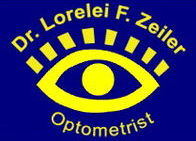 In the aftermath of a car accident, the journey to recovery can be long and challenging. For many patients, the path to our vision therapy office begins with a referral from their occupational therapist or through their research on concussions and vision therapy. It's a journey that underscores a critical aspect of post-accident rehabilitation that many often overlook: visual system health and vision therapy.
In the aftermath of a car accident, the journey to recovery can be long and challenging. For many patients, the path to our vision therapy office begins with a referral from their occupational therapist or through their research on concussions and vision therapy. It's a journey that underscores a critical aspect of post-accident rehabilitation that many often overlook: visual system health and vision therapy.
The initial concerns following a car accident typically focus on immediate, visible injuries such as broken bones, cuts and bruises. The invisible wounds often go unnoticed and untreated, undermining a person’s quality of life. Many of our patients don't even realize their vision is compromised until a professional points it out. Symptoms like digital eye strain, light sensitivity, and dizziness become new, unwelcome facets of their daily lives. These individuals often try to endure and live with these issues, unaware that these are common post-concussion symptoms we can address with targeted vision therapy.
Recognizing Vision-Related Symptoms
Recognition that there's an issue often starts with the realization that one's experience with digital devices has changed. Screens, once a window to work and leisure, now become sources of strain and discomfort. A person may experience extreme light sensitivity, making everyday environments feel overwhelmingly bright or glaring. Extreme dizziness can turn simple tasks into daunting challenges.
We can diagnose these symptoms early on based on eye movements and tracking. However, many patients compensate or ignore these issues until a noticeable change in their quality of life. This is where vision therapy comes in.
The Role of Vision Therapy
Vision therapy is not a quick fix. It involves personalized exercises designed to improve visual function and alleviate symptoms associated with post-concussion syndrome. Commitment to therapy — both in-office and at home — is crucial for our patients. While change isn’t instant, those dedicated to their therapy regimen see significant progress over time.
We take a comprehensive approach to our patient’s vision, starting with a thorough assessment to understand each patient's unique challenges. We then tailor a therapy program that targets their specific issues, focusing on exercises that enhance eye coordination, focusing abilities, and eye movement control. This can include specialized equipment, computer-based exercises, and activities that patients can do at home.
A Path Forward For Those With Vision-Related Symptoms
For many, the decision to seek help is a turning point. It’s an acknowledgment that enduring and living with these issues is not the only option. Vision therapy offers a path forward that improves functionality and quality of life. Our patients' stories are a testament to the resilience of the human spirit and the potential for recovery, even in the face of daunting challenges.
In sharing this, we aim to reach those enduring in silence, unsure where to turn. If you or someone you know has been in a car accident and is experiencing vision-related symptoms, seeking professional help is important. Vision therapy may be the missing piece in the recovery puzzle, offering hope and a tangible path to improvement.
For more information about how we can help, contact our Caledonia eye care team at The Office of Dr. Lorelei Zeiler today!
